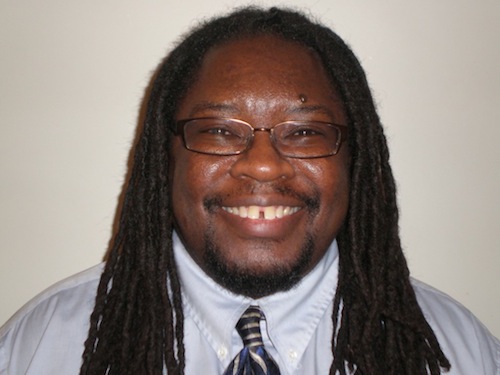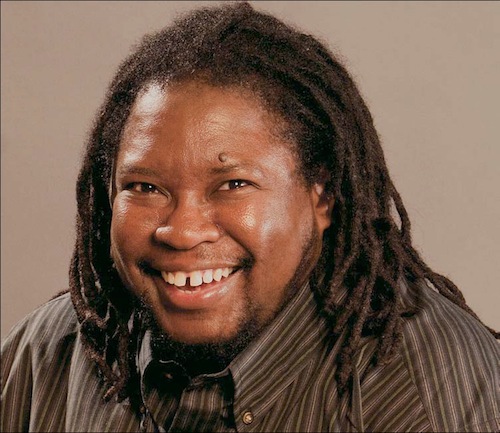
Being comfortable in your own skin, is what most of us strive for at some point, in my opinion. For each person, being confident and secure with who they are on the inside as well as externally, is somewhat of an eternal struggle. For many people, what they see when they look in the mirror is a huge deciding factor on how they feel about themselves. Having said that, imagine if every time you looked in a mirror, what you saw reflected back at you did not represent who you feel you are on the inside?
I wake up everyday as a woman and I feel that I am a woman, inside and out. But, what if I felt like I was a man -- and I am not talking sexual preference; what if male was the gender I identified with? What would anyone's life be like, if every time you looked in the mirror, you did not connect, recognize or feel an association with what or who was staring back at you? Transgender people have a number of difficulties for a variety of reasons. They are victims of discrimination, harassment, fear-based hate and often, the victims of crime.
I recently attended the Good Vibrations Sex Summit. One of the speakers, Yoseñio Lewis was sharing on a panel about "Sexual Health and Pharmaceuticals." He made some thought provoking statements, about how the pills that help us live longer, at times can alter our quality of life. As I listened to Lewis explain why he felt this way, I was floored when he identified himself as a trans man. His statement was followed by: "It's OK, you can pick your jaw up off the floor now."

Yoseñio Lewis
Seeing him teach and speak, I identified Lewis as a man. I was surprised when he shared that he is a trans man. It didn't change what I thought of him, but it made me curious about what he must have gone through to make the transition from female to male. I wanted to know the process and how it impacted him, good or bad. Lewis was gracious enough to answer the questions I asked him, speaking for himself and hopefully, in doing so, shedding some light on the topic for others.
Lewis always felt he was a man on the inside:
I was seen as a very ugly woman. I could never achieve the standard of beauty, because I was not white and I wasn't feminine enough. So, I was ugly in peoples eyes, that was one strike against me, shall we say. I was a shrinking violet before, always trying to fit in, and in trying to fit in I engaged in what I would call misogynistic behavior. I had such a low opinion of women and how they should and should not behave, that I was exerting that opinion through my behavior and trying to be meek and mild. But I was perpetuating a stereotype, in order not to cause trouble and in order not to be seen. I am not proud of myself for behaving that way, but I recognize it.
When Lewis made the decision to make his external appearance fit how he felt on the inside, it was a huge undertaking:
You go to a therapist, a psychiatrist, or a clinic and you tell someone, 'This is my reality. I am ready to do something, to make outward changes, so that I may be congruent with my inside feelings.' Then you're also going to see an internist at some point, because you have to be assessed and you have to get blood work done. People need to know that you're going to be healthy enough to go through this process. There is also the psychological preparation that you have to do. For some people, making a physical transition of your body is not the appropriate thing to do. Some people need to address some other issues first. But initially, you want to have that conversation with someone in the mental health field, to find out if this is really good for you. They will then get what I call a 'permission slip,' to say, 'Yes this person does need to address this issue and should be allowed to start on hormones.'
I asked what an average day looked like for him, as a trans male, in terms of the hormone therapy:
As female to male, I have used testosterone patches and I take shots of testosterone. In the United States, shots and patches are available. There is also a testosterone cream that is available. The injections are the ones that are the fastest acting. For female to male people, if you don't already have a deep voice, most of the time you'll have a very dramatic difference in your voice. The meds allow your vocal chords to thicken, more like a male's vocal chords, so your voice gets deeper and more resonant. You develop a growth pattern of hair that is identical to men, there is a possibility that you will develop the same risks for heart disease as any other man would, because you have an increased amount of testosterone in your system. There is a change in genitalia, the clitoris enlarges... it's a noticeable enlargement. Taking those hormones are what allow your body to go through a secondary puberty and allow you to transition. There are certain changes that are irreversible, if you decide to go back to your original sex, such as the thickening of the vocal chords. Hormones are a requirement trans people have to take for the rest of their lives.
I asked Lewis what some of negative aspects of the transition have been for him:
I went from being seen as a black, latino woman, to a black latino male. Nobody wants to be a black male, because then you're a suspect all the time. You're the one who causes all the ills of the world, you're the one we always looked to when a crime occurs. That is the face we always see getting arrested. I get stopped a lot more than I did previous to my transition.
When we spoke of the social and community driven issues, Lewis told me what he found most surprising about being a man:
The most immediate difference that I found, is that other men love to challenge me. There is a constant who is the top dog, who is the alpha dog attitude? I feel emboldened now. When you see me, you see me as a black man, so yeah, that suspect attitude can work in my favor, because I'm scary! (He said this with a chuckle) I will say something now, whereas before I may not have said anything, because I would have been too afraid. I would think, 'Oh... you're a woman, you'll get beat up, you'll get raped, You need to just stay quiet.' I am much more emboldened to stand my ground now and other guys are much more emboldened to try and challenge that. I feel much more comfortable taking my place and taking up some space in the world. What I have always felt on the inside, is reflected on my outside. So, now I don't focus so much on my behaviors, such as, 'Is this masculine enough?' When we don't have the opportunity to be seen as who we feel ourselves to be, we concentrate on how we are different. While I know now that for the most part my outsides match my insides, I still work at paying attention to my misogynistic behavior and correcting it myself, instead of waiting for it to be pointed out to me. It's important to me not to be a stereotype of a man, as much as it was for me not to be a stereotype of a woman.
Currently, Healthy San Francisco, the city's unique program allowing health care access to all, is now becoming inclusive of trans people for medical coverage. Trans people were able to get hormones and mental health coverage through Healthy San Francisco, but nothing else. For many, this is one more sign that San Francisco puts its money where its mouth is. We are a city dedicated to helping one another.
Going to the doctor is a huge ordeal for many trans people. Lewis explains:
If I need to have a test done, or a test re-done, I have to come out to everyone in order to get my treatments done. I have to go through that process, because they have access to all my medical records. So it is a constant process of outing myself, just to get access to the rights that are due me as a human being.
All of us at some point may have a day to day struggle, but the struggle trans people have is vastly different; they have to fight for rights we take for granted everyday. The world is not kind to what it does not understand and most people do not take the time to understand what it means to be transgendered. The challenge in this, regardless of what one believes to be right or true for them, is to see people in general, as people and as we would want to be treated.

Yoseñio Lewis
Lewis is a member of the National Advisory Board for the Center of Excellence for Transgender Health. Lewis also does speaking engagements in elementary and secondary schools, as well as to universities to demystify LGBTIQ people and to therefore reduce the bullying that goes on in schools. Part of why he agreed to speak to me, is because he wants people to ask questions and to better understand what it is to be a trans person, and in that understanding perhaps the trans community can gain more acceptance, and face less ignorance and cruelty.